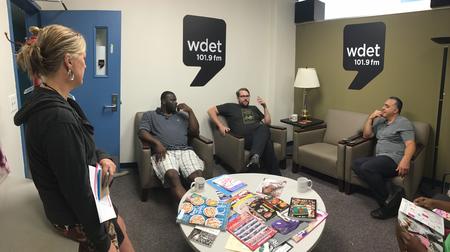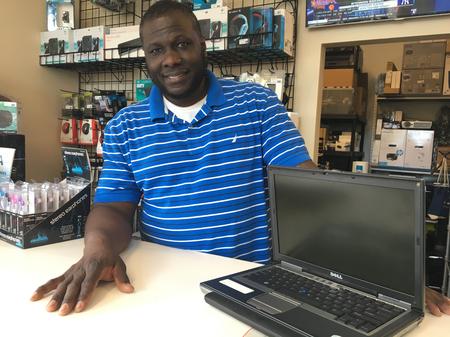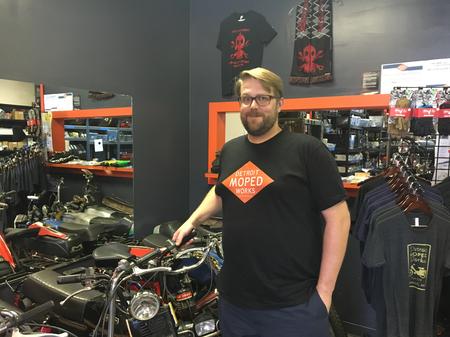Growing Business And Community on Michigan Avenue in SW Detroit
Business and community leaders talk about their hopes for the future of their neighborhood.

The stretch of Michigan Avenue running through Southwest Detroit is one of the city’s most diverse and burgeoning neighborhoods. It’s a cultural center that is often conflated with it’s most recognizable section, Mexican Town.
But the area is much more than a cluster of restaurants. It’s residents are spearheading efforts to build and maintain a sense of cultural identity and economic stability.

Despite the area’s advantages, it also struggles with many of the challenges facing most other Detroit neighborhoods.
Joe Gappy is the current owner and manager of Prince Valley Market on Michigan Avenue. He and his family have seen first-hand the significant changes the neighborhood has gone through in recent decades. Gappy’s father bought the supermarket in 1975. At that time, the area had mostly a German and Polish community. As of today, Gappy caters largely to Hispanic and African-American customers.

As a former GM employee, Merlton Brandenberg moved to Detroit from Ohio to open the Jorgensen Ford car dealership.
Brandenberg says, “the city itself is changing and its exciting… People are moving to the city that don’t have a negative image.”
Both Gappy and Brandenberg agreed that there is not a lack of jobs in the city, there is a lack of qualified workers. Brandenberg says the older generations are more reliable than the younger generations.
“I think it comes from discipline and expectation,” he says.
Michigan Avenue consists of small business owners that provide great products and services. Gappy prides himself on the quality of fresh food Prince Valley Market provides to his urban community.

Brandenberg says, “I do believe people go where they feel most catered.”
Detroit Today guest host Sandra Svoboda also speaks with two smaller, specialty business owners who have launched their second careers on Michigan Avenue.
“I wanted to fill a void in the community,” says Willie Brake, owner of All About Technology. “Believe it or not, we do not have a computer store in Detroit. So residents have no place to take their technology projects when they’re not working.”
Brake has also made an effort to provide affordable computers to low-income customers in order to address what’s often called the “digital divide” between the poor and higher-wage earners.
Unlike Gappy and Brandenberg, these business owners set up shop on Michigan Avenue because it was close to home.

“This was basically just the place that was closest to my house that I could purchase in cash,” says Alex Samul, owner of Detroit Moped Works, a vintage moped sales and repair dealership. It’s one of only a few in the country.
Samul says most of his customers come from outside the neighborhood.
“We bring a lot of traffic to the area and get to acclimate the people with the area that are not familiar.”
To hear the full conversation, click on the audio player above.
